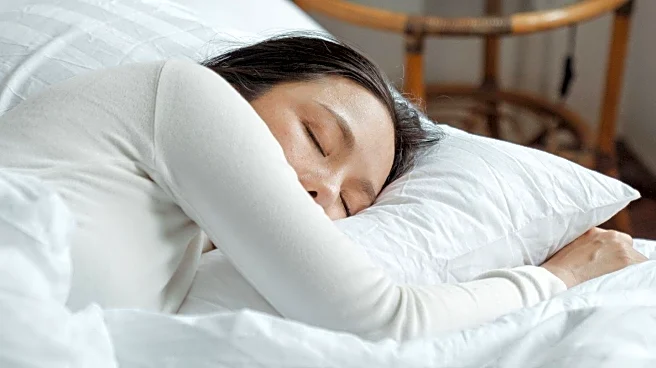What's Happening?
Dr. Kara, a naturopathic doctor, has shared insights into the 'second wind' phenomenon and its effects on sleep hormones. According to Dr. Kara, going to bed between 11 p.m. and 1 a.m. disrupts the balance
of cortisol and melatonin, leading to poor sleep quality. The 'second wind' is a surge of alertness driven by circadian rhythms, making it harder to fall asleep during this period. Sleep expert Matthew Beard suggests that aiming for a bedtime around 10 to 10:30 p.m. aligns best with the body's internal clock, supporting deep and REM sleep cycles.
Why It's Important?
Understanding the 'second wind' phenomenon is crucial for improving sleep quality, which is essential for overall health and well-being. Poor sleep can lead to various health issues, including decreased cognitive function, mood disorders, and weakened immune response. By aligning sleep schedules with natural circadian rhythms, individuals can enhance their rest and recovery, leading to better physical and mental health outcomes. This information is particularly relevant for those struggling with sleep disorders or irregular sleep patterns.
What's Next?
Individuals are encouraged to adjust their sleep schedules gradually to align with their circadian rhythms. Health professionals may continue to research sleep patterns and their impact on health, potentially leading to new guidelines for optimal sleep practices. Public awareness campaigns may be launched to educate people on the importance of sleep hygiene and the benefits of consistent sleep schedules.
Beyond the Headlines
The focus on sleep quality also highlights broader issues of lifestyle and work-life balance. As society becomes increasingly fast-paced, understanding the impact of daily routines on sleep and health becomes essential. This development may lead to more comprehensive health guidelines and recommendations from medical professionals.










